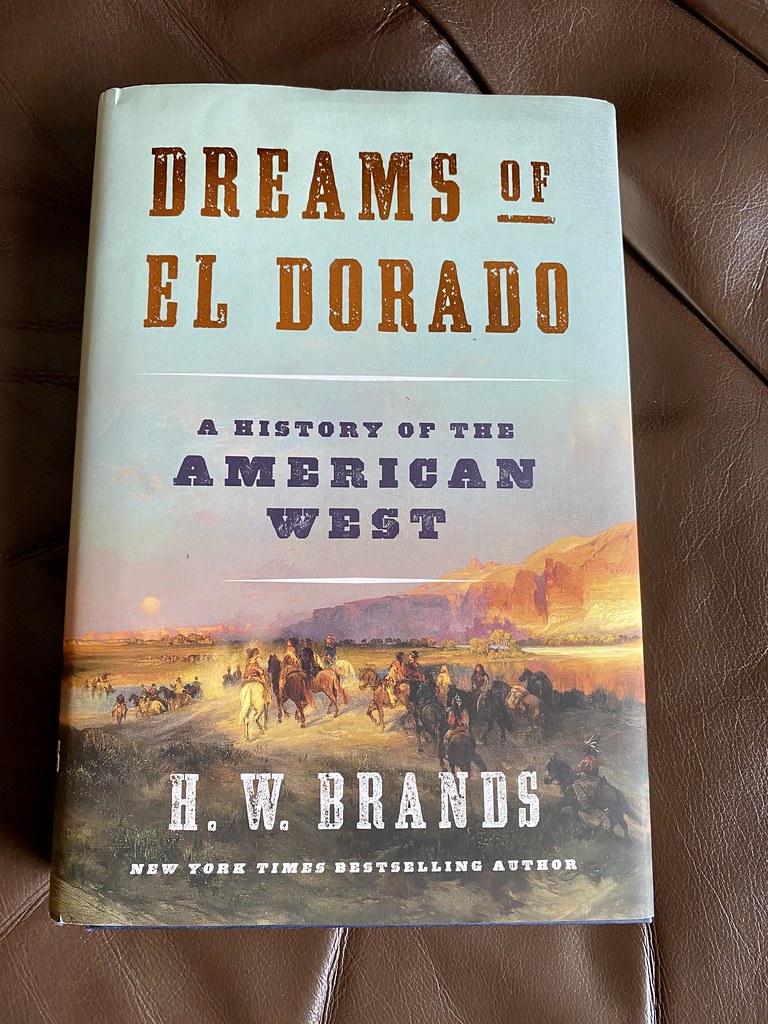History gives you perspective: things could always be worse. Rather than sitting at home with Netflix and DoorDash during a pandemic, you could be:
A fur trapper, stripped nude and forced to run for your life for the entertainment of Native American warriors.
A family on the Oregon Trail, bamboozled by your guides, and left for dead in the mountains.
A San Francisco resident during the Gold Rush watching the city burn down for the second time in a week.
The settling of the West, as told in Dreams of El Dorado by H.W. Brands, is the story that we’re all familiar with – human endurance in the face of hardship – but it also takes apart a host of comforting American myths.
Rugged individualists did not last long in the West. In an inhospitable landscape full of deadly people and things, you needed to work with others to survive.
For example, the wagon trains that set out for Oregon were cities on wheels, with experienced leaders, rules and a daily schedule. Fur trading was a multinational affair, with trappers from different countries working in teams and then partying at the end of the season as they exchanged their goods. The lone gold miner might find a nugget or two but the real money was earned by companies who organized workers and sluices to shift whole mountainsides.
And none of this success would’ve been possible without the tribes of the West. The Sioux, the Crow and other Native peoples were allies and competitors until they were exterminated or forced into reservations by the American invaders.
The story of the West is also the story of the federal government. Everything west of the Mississippi started out as federal land, when Jefferson purchased it from Napoleon. California and other territories were taken from Mexico. While Texas won its independence, the Lone Star State would not have survived without annexation by the U.S.
The West, unlike the settled states of the East, is a creation of the American government. Through the Homestead Act and other laws, Washington controlled who got land and (more importantly) water in region, unlike anywhere else in the country.
Yet, we cling to our myths of the open frontier, for they express the American ideal of endless reinvention.
Dreams of El Dorado describes how, for a few short and brutal years, freedom could be found in the West, often at a terrible cost, before it became just another region of America, a dry landscape that you glimpse from a window seat as you fly over the country.
